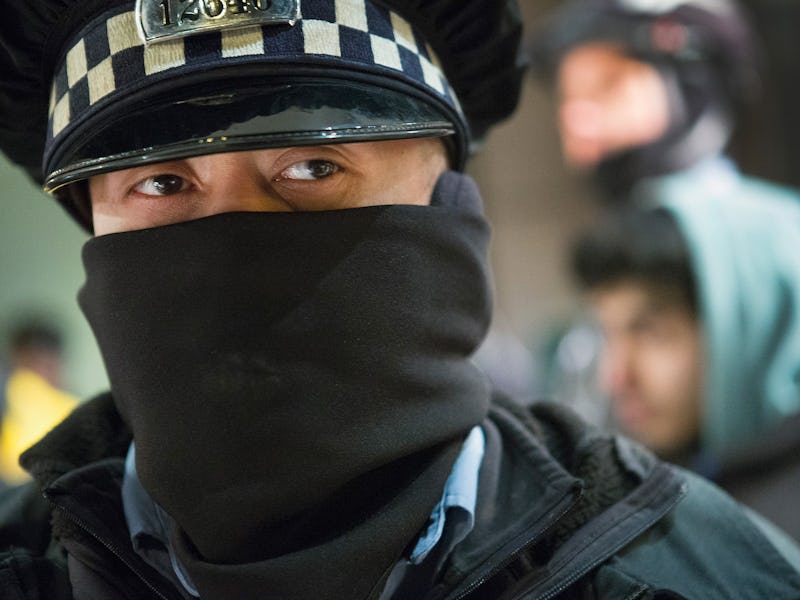Police Should Have Warrant to View Cell Phone Location Data, Argues EFF
The privacy group says citizens have reasonable expectation of protection.

Digital civil liberties group the Electronic Frontier Foundation is urging a federal appeals court in Chicago to rule that police need to have a warrant if they want to view your cell location.
“When the government knows where you are, they know who you are,” Adam Schwartz, senior staff lawyer with the EFF, tells Inverse about the “friend of the court” brief it filed Friday for the case, U.S. v. Patrick. “[Government] know if you’re going to church, to the liquor store, an abortion clinic, a meeting with a criminal defense attorney.”
We trust our phones with private emails, banking information, and sometimes even naked pictures, and all the while it’s pinging location data that’s accessible from any cell tower within range.
The EFF wants police agencies to have a warrant before searching for your cell phone's location data.
“All we’re saying is, before they use those phones in our pockets as tools against us, go to a judge,” Schwartz says.
The brief, filed in the United States Court of Appeals for the Seventh Circuit, argues that a cell phone’s location data shouldn’t be accessible by the police without a warrant. (The brief is also backed by the American Civil Liberties Union and the ACLU of Wisconsin.)
The EFF has a strong recent history of fighting for privacy, be it opposing a “golden key” into cell phone encryption or even battling against tech companies patenting new ways to harass an inmate’s family into paying to call them behind bars.
The brief’s part of the ongoing legal battle is U.S. v. Damian L. Patrick, a Wisconsin man charged with felony possession of a weapon. Patrick was arrested after police tracked him down using a device called a stingray to trick his cell phone into connecting to it. He was found in a car with a gun at his feet.
The brief notes:
“[A] Fourth Amendment search occurs when the government violates a subjective expectation of privacy that society recognizes as reasonable.” See Kyllo v. United States, 533 U.S. 27, 33 (2001) (citing Katz V. United States, 389 U.S.347, 361(1967))(Harlan, J., concurring)). Numerous opinion studies and advances in state law demonstrate both that Americans have a subjective expectation of privacy in their location information and that a growing portion of society recognizes this expectation as reasonable.
And while the idea of privacy seems increasingly quaint if not outright naive, the EFF argues that people still consider their locations to be “sensitive information,” citing a number of studies:
In 2012, the Pew Center found that cellphone owners take a number of steps to protect access to personal information and mobile data, and more than half of phone owners with mobile apps have uninstalled or decided to not install an app due to concerns about the privacy in their personal information. In addition, more than 30% of smart phone owners polled took affirmative steps to safeguard privacy: 19% turned off location tracking on their phones and 32% cleared their browsing or search history. The numbers are higher for teenagers, with Pew reporting 46% of teenagers turned location services off. A 2013 survey conducted on behalf of the Internet company TRUSTe found 69% of American smartphone users did not like the idea of being tracked. And a 2009 Carnegie Mellon survey of perceptions about location-sharing technologies showed that participants believed the risks of these technologies outweighed the benefits and were “extremely concerned about controlling access to location information.
Most Americans still think their movements should be private.
New tech doesn’t always require new laws. In the case of cell phone data, the EFF just wants the same standards that would protect citizens from any other unreasonable search.
“All we’re seeking is the same benchmarks as are used for a judicial warrant, which is the police have to persuade the judge there’s probable cause to believe that the target is engaged in criminal activity,” Schwartz says. “That is a standard ancient in its origins, and all we want is for it to be applied to new technologies.”